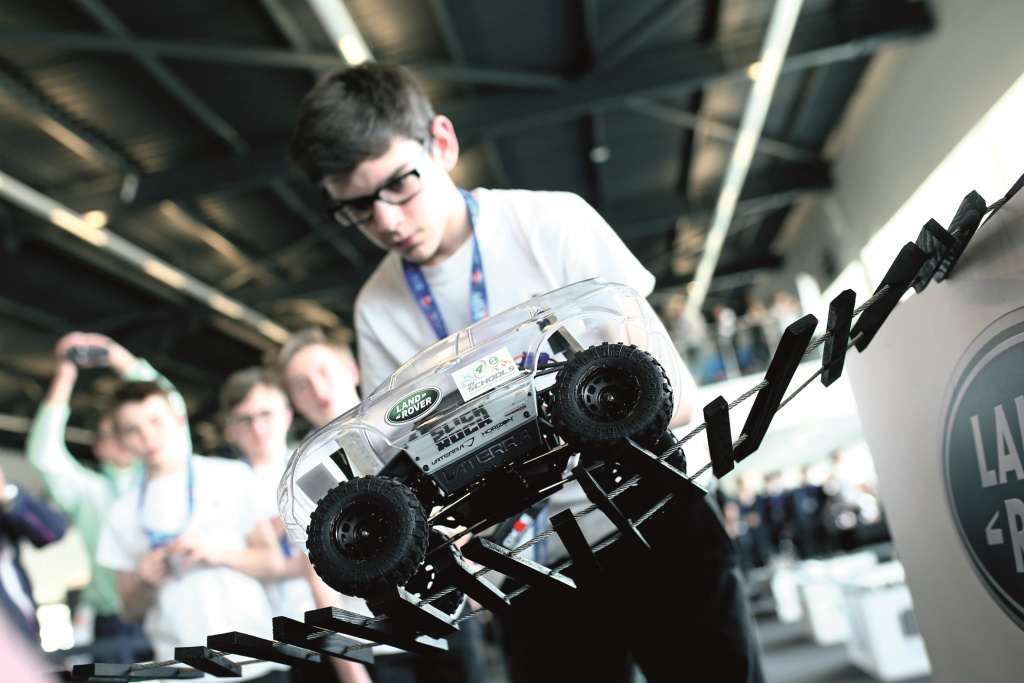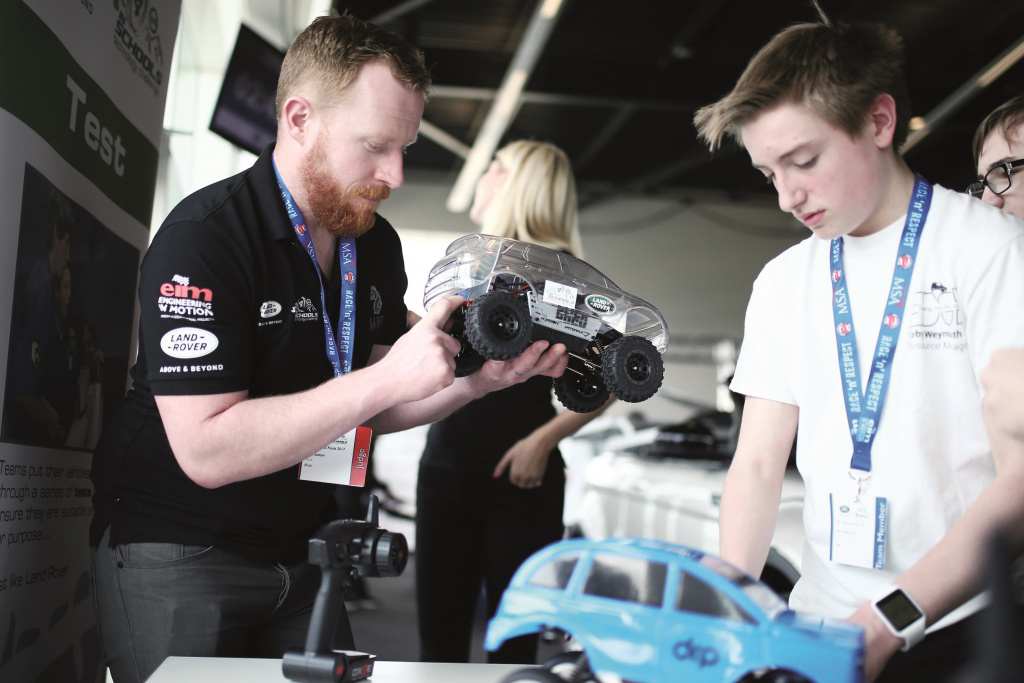
Back at base, the motorsport teams were a little disheartened. The constructors in the gruelling 4x4 Jaguar Rover Challenge trials had failed to secure a place in the world finals, even though at regional level they had won Best Innovative Car Design and Best Engineered Car. To come away empty handed after that was tough!
The Land Rover Jaguar 4x4 Challenge – run under the auspices of the F1 in Schools organisation – requires school teams to build and design their own off-road remote controlled model vehicles and then put it through a series of very challenging trials: up steep inclines, down treacherous slopes, across steeply walled valleys and through unevenly surfaced tunnels. They even have to cross an unstable wood-slatted bridge hung across a ravine.
The teams are judged on their vehicle’s success in traversing the route, and on design and engineering principles. They are interviewed in the ‘pits’ by experts and then interrogated in rigorous interview panels. The rookie teams in their first year of competition, as was the Shireland team, are given their engine by the sponsors. But the more experienced teams build their own.
The F1 Challenge is more about speed on the track, although the other design and engineering criteria also apply.
The F1 Team fared a little better in the speed trials, coming third nationally. For Shireland Collegiate Academy, F1 in Schools and the 4x4 Challenge are a serious business and a reflection of the school’s drive towards engineering and product design excellence. Had either team won they would have been taken to Malaysia to take part in the international schools finals and would have been offered a close working relationship with the Williams team, one of the F1 Teams based at Milton Keynes.
For the young DT staff group, who all met each other at University and from teaching in the Middle East, failure is part of the learning process. It teaches the students resilience and problem solving skills. Elfyn Jones, one of the teachers working with the students on the Challenge explained that it was this predisposition towards problem-solving within the subject that was behind the reason that Shireland Collegiate Academy in September 2015 made the unprecedented decision to make Design and Technology compulsory through to GCSE – one of the few schools, perhaps the only school - in the UK to do this.
